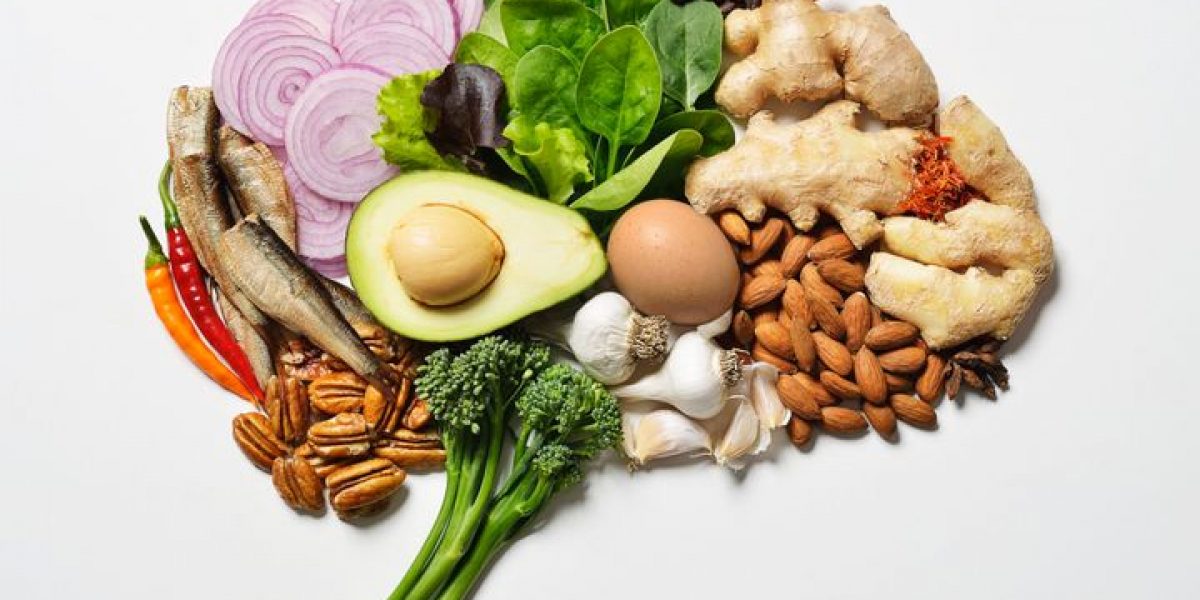Did you know?
What we eat affects our physical health, but did you know that it affects our mental health as well? Our brains are always “on”, taking care of our thoughts, movements, breathing and heartbeat, even while we’re asleep. This means that our brains need a constant supply of fuel from the foods we eat. What’s in that fuel affects how well our brains can work.
What’s food got to do with it?
Think of construction: there are many essential building materials needed to make a study house. Our bodies are similar in that they need enough of the many essential building materials (essential nutrients) to build chemical messengers that help control our mood. We can get enough of these nutrients through certain foods we eat. If we don’t have enough of these building blocks, it can lead to depressive symptoms when less “feel good” messengers are made. When this is the case, it can be possible to reverse those symptoms by eating a healthy diet.
What does the research say?
A review of over 20 studies looked at the connection between diet and risk of depression. The Western diet involves a high intake of red and/or processed meat, refined grains and sweets, and is related to an increased risk of depression. Thankfully, other studies went on to show that mental health can be improved through nutrition. The Mediterranean diet is one well-studied way of eating that focuses on whole foods and healthy fats. This pattern has been shown to decrease the risk depression and reverse depressive symptoms as well. There was a dose-effect to this eating pattern, meaning the more closely it was followed, the greater the benefit. These mental health improvements were found no matter the participants’ income or weight.
Simple ways to go Mediterranean
The Mediterranean diet is about enjoying healthful foods as a way of life, rather than complying to a strict, short-term diet. Some typical foods thought to be helpful in this way of eating include whole grains, produce, olive oil, legumes and fish. Fuel up for the day by having a breakfast filled with fiber-rich foods. Mash an avocado and spread it on toast. Or, have some plain Greek yogurt and flavor with frozen berries, oats, and seeds. Throughout the day, quench your thirst with lemon water and snack on some unsalted nuts. Olive oil is the main source of daily fat and can be used in a variety of ways. Try dipping a fresh whole grain bun in olive oil instead of spreading butter on it. Add some flavor to the oil by adding garlic and a splash of balsamic vinegar, which also works for homemade salad dressing. For meals, enjoy pasta, vegetable or rice dishes that are flavored with olive oil, garlic, tomatoes and/or onions. Including salads is a great way to fill half your plate with vegetables. Finally, try satisfying sweet cravings with a fruit salad for dessert.
One step at a time
A healthy diet is good for our physical health, but now it’s time to think about what it can also do for our mental health. Thankfully, the focus stays the same: try to eat a balanced diet. Our mental health benefits even when we make small changes that align with the Mediterranean diet. Try some of the tips mentioned, remembering that it doesn’t have to be an all-or-nothing approach. Small daily improvements lead to long-term results. For more guidance on eating for brain health, contact the Marathon Family Health Team to book an appointment with the Registered Dietitian.
Michelle Stevens, Registered Dietitian



